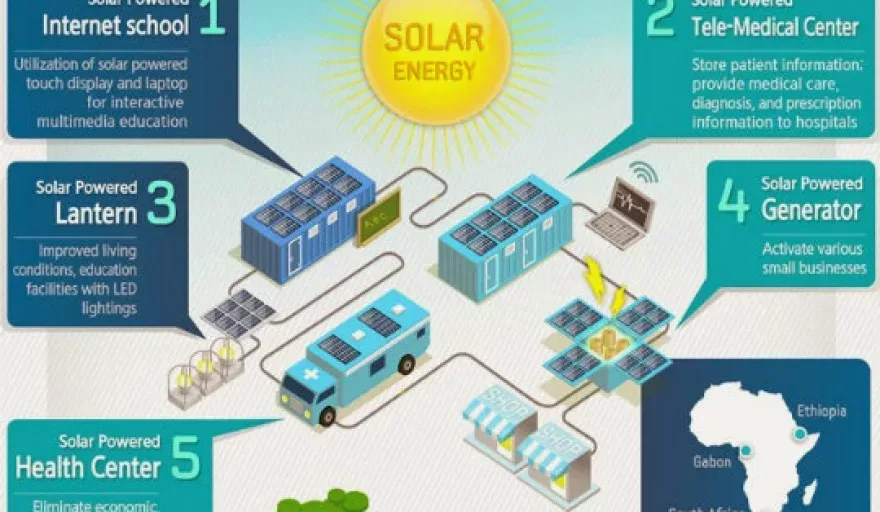Samsung Electronics Africa has officially handed over its revolutionary ‘Digital Village’ to the Gabonese government during a ceremony in Libreville, Gabon.
The Samsung Digital Village, a cluster of connected health, education and administration facilities, fast-tracks the digital development of underserved communities.
The Gabonese government, currently seeking to harness ICTs for socio-economic development across the country, has shown keen interest in the installation. Government officials have reviewed progress during the development of the Digital Village, and numerous dignitaries attended the official launch. Other stakeholders, including Airtel and Gabon Telecom, were engaged in providing connectivity for the Digital Village.
Ntutule Tshenye, Head of Public Affairs and Corporate Citizenship at Samsung Electronics Africa, says the Samsung Digital Village, pioneered in Africa in 2013, comprises a Solar Power Generator, Solar Powered Internet School, Health Centre, Tele-Medical Centre and Administration Centre. These facilities meet the most critical health and education needs of underserved communities, as well as giving communities access to power and internet connectivity; often for the first time.
Digital Villages quickly become multipurpose community centres and a hub of communication and development in communities where they are rolled out.
The Solar Powered Internet Schools revolutionise students’ learning and become community internet centres and e-government access points after school hours; entrepreneurs are able to use the admin facilities to gather information and trade more effectively; the Health Centres double as clinics and healthcare education hubs; and the Solar Power Generators generate additional power to the Digital Village.
In communities where Samsung Digital Villages have been installed, an immediate impact has been felt in terms of access to information and improved healthcare.
“Enabling communities’ access to internet connectivity has an immediate transformative impact,” says Tshenye. This is reflected in the United Nations (UN) Council’s report, which states that the internet can play a key role in ‘mobilising the population to call for justice, equality, accountability and better respect for human rights. As such, facilitating access to the internet for all individuals, with as little restriction to online content as possible, should be a priority for all States’.
“Gabon’s vision for socio-economic development through ICTs made this the ideal site for a pilot Digital Village in the region,” says Tshenye.
The Gabonese government believes that projects such as the Samsung Digital Villages will have a significant impact on the communities they serve. Not only do they facilitate instant power and connectivity to isolated communities, they also allow for the delivery of e-government services and empower communities to take charge of their own development.
Samsung’s Digital Villages are part of the company’s far-reaching African citizenship programme, designed to positively impact the lives of five million people by the end of 2015. Digital Villages have also been installed in DRC, Ghana, Nigeria, Tanzania, South Africa and Sudan and additional Digital Villages will be installed in Ethiopia, Kenya and Zimbabwe this year.






























